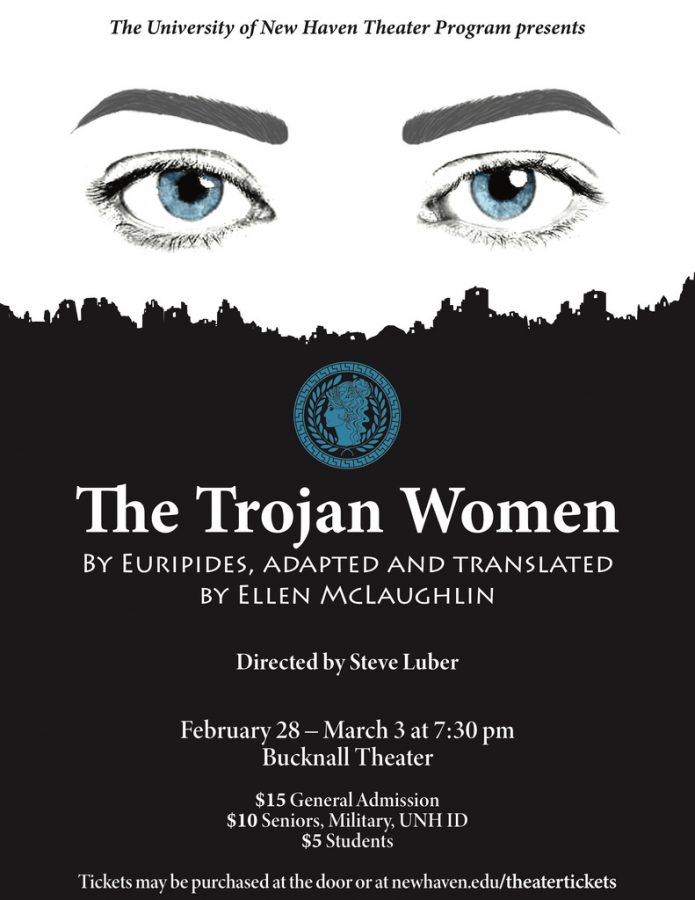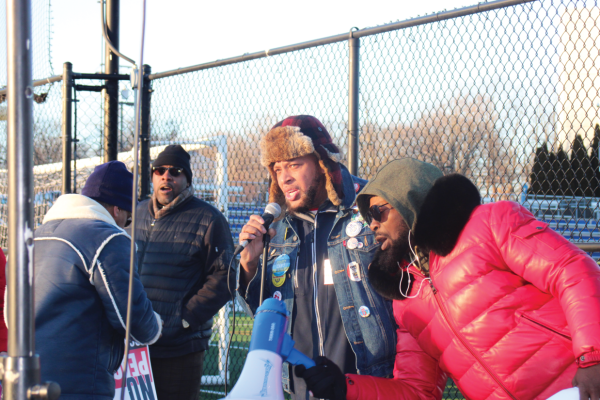“The Trojan Women” Resonates with #MeToo
“The Trojan Women” opens this Wednesday (Feb. 28) and relates largely to the recently growing #MeToo and #TimesUp movements.
Steve Luber, theater coordinator and director of the play, chose the play partly because the department hasn’t done a Greek tragedy recently and partly because he wanted a relevant play that focused on the women’s experience. The decision also came after Luber read an article about human trafficking in Connecticut.
“Woman being bought and sold is not just an ancient Greek problem,” said Luber.
He chose this play just five months before the Harvey Weinstein story broke and the #MeToo movement began.
“I had no idea it would be such a watershed moment,” said Luber.
The play takes place following the Trojan War, after they kill all of the Trojan men. Most of the play’s action takes place as the women are contemplating what will happen to them. Luber said that it is important to note that it is entirely about the people they conquered, and thus provides a way to reflect on what we have done as a culture.
“We have a lot of things we need to look at as a culture, as artists, as a nation, and look at it through a more critical lens,” said Luber. “We can do that in theater.”
The cast and crew have been working closely with university professor Tim Palmbach’s Oskar Schindler class to coordinate education and outreach within the community. This will include talk-backs at the end of some of the shows, where students will be able to sit down with the cast and crew to discuss the themes in the play, which will cover sexual assault and rape.
“The Trojan Women,” has taken on a new sense of importance with the cast and crew in the recent social climate.
“There is a sense of angry that is beginning to bubble over,” said Luber. “It gets a little dangerous, it gets a little scary, and that’s fantastic.”
Dali Irizarry, a theater arts major, playing the role of Hecuba, explains that it has all helped her better understand her character. She said that Hecuba is a very empowered woman, and she finds her in many modern women, including Michelle Obama. According to Irizarry, Hecuba “embodies them all.”
“It makes me think about the women that have felt that they couldn’t stand up to it, that they couldn’t stop it, that they couldn’t interfere in it,” said Irizarry. “It’s absolutely heartbreaking, it makes it even heavier.”
Erica Quaedvlieg, a theater arts major, playing the role of Cassandra, has also resonated with the feeling of empowerment, and enjoys watching her friends take on these roles as well. Specifically, she looks to the women who play in the chorus, entitled ‘the tribe,’ as an embodiment of women united in support of one another.
“Now more than ever we need women, we need people to come and say we have all been through this and we will always be there for each other,” said Quaedvlieg. “We are demonstrating people’s struggles, their stories, we are showing people a struggle that sometimes gets tossed aside in a conversation and labelled as an unimportant thing. It’s an honor to represent them in a way that really showcases women’s strengths.”
Overall, the cast and crew feel the play has taken on a new sense of urgency that needs to be brought to the campus community.
“Euripides wrote a play 2500 years ago about the abhorrent treatment of women in his culture and here we are still dealing with it,” said Luber.
The plays runs every night at 7:30 p.m. from Wednesday, Feb. 28 to Saturday, March 3.

Karina Krul is a senior marine biology major with a triple minor in psychology, political science and marine affairs. This is her fourth year with The...










